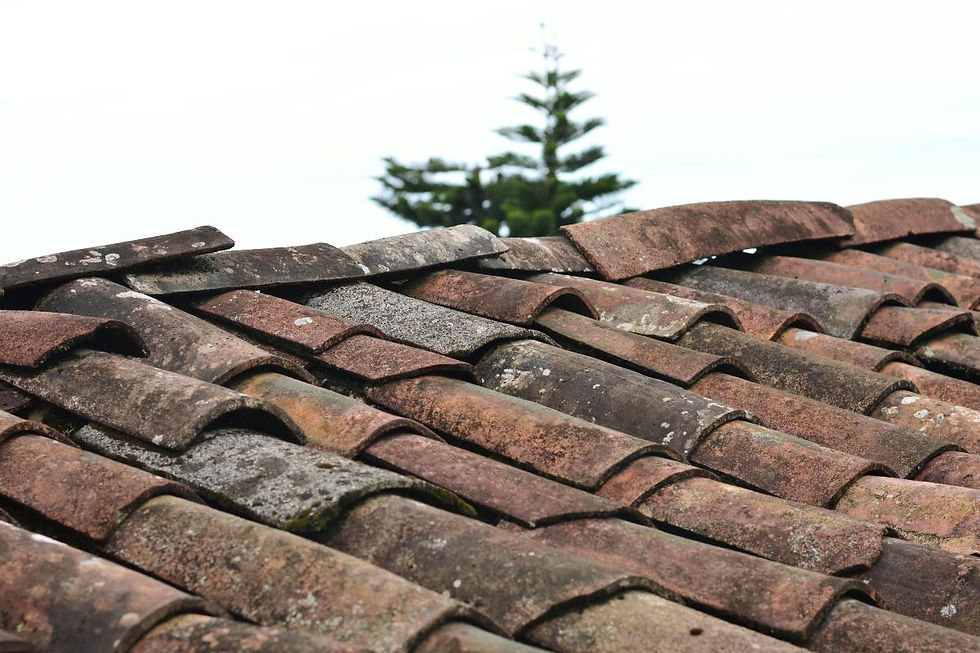How Much Does a New Roof Cost in the UK? A Breakdown by Roof Type
- Corsol Conversions

- Jun 27, 2025
- 4 min read
Updated: Dec 16, 2025
Replacing a roof is one of the bigger projects a homeowner can take on – and it’s one that often starts with a groan as you begin to calculate the cost.
Whether it’s down to age, weather damage, or just bad luck, a full roof replacement isn’t something you want to deal with more than once.
But if it’s time, it’s time - and knowing what to expect upfront can make the process a lot less stressful.

In this guide, we’ll walk you through what a new roof actually costs, what affects the price, and how different roof types stack up.
When Do Homeowners Tend To Replace A Roof?
You might not see your roof every day, but it works around the clock to keep you and your family dry and warm.
Over time, even the best roof materials start to fail due to weather, age, or poor installation.
Common reasons for replacing a roof include:
Persistent leaks and water damage
Sagging areas or structural deterioration
Storm or wind damage
Planning a loft conversion or extension
Improving insulation and energy performance
Selling the property and wanting to increase the value
In most cases, a roof replacement is more cost-effective over time than repeated repairs.
The Average Roof Replacement Cost in the UK
While every property is different, here’s a rough guide based on common roof types:
Roof Type | Estimated Cost |
Flat Roof | £1,500 – £4,000 |
Gable Roof | £5,000 – £8,000 |
Hip Roof | £7,000 – £12,000 |
Mansard Roof | £10,000 – £18,000 |
Dormer (per unit) | £2,000 – £4,500 |
Roof on Extension | £2,500 – £6,000 |
These prices include labour, materials, waste removal, and scaffolding. If structural repairs are needed, costs may increase.
Roof Lifespan Expectations by Type
If you’re not sure whether your roof needs replacing or not, consider its age:
Felt flat roofs: 10–15 years
Fibreglass (GRP): 20–30 years
EPDM rubber: 25–40 years
Clay tiles: 50–70 years
Concrete tiles: 40–60 years
Natural slate: 75–100+ years
Maintenance, installation quality, and exposure to weather all influence lifespan. If your roof is approaching these ages and showing signs of wear, replacement may be due.
In-depth Cost Breakdown by Roof Type
Flat Roof
Flat roofs are common on extensions, porches and garages. Modern materials offer far better performance than old bitumen systems.
Felt: £40–£70 per m²
EPDM rubber: £70–£100 per m²
GRP fibreglass: £80–£120 per m²
Pros: Cheaper, quick to install Cons: Shorter lifespan than pitched options
Gable Roof (Dual Pitch)
One of the simplest pitched roof designs — two slopes forming a triangle.
Cost for full replacement: £5,000–£8,000
Common on semi-detached and detached homes
Pros: Straightforward shape, good drainage
Cons: May lose heat if not well insulated
Hip Roof
This design slopes down on all four sides and is often seen on bungalows and newer homes.
Cost: £7,000–£12,000
Takes longer to install due to complexity
Pros: Very stable and weather-resistant
Cons: More labour and material costs
Mansard Roof
Found mainly in older urban homes, this type creates maximum internal loft space.
Cost: £10,000–£18,000+
Often part of a loft conversion
Pros: Adds extra storey
Cons: Planning permission usually required, more structural work
What Influences Roof Cost?
Beyond shape and size, these factors can shift your quote significantly:
Access and scaffolding: Hard-to-reach areas cost more to scaffold.
Materials: Clay, slate and fibreglass are pricier than felt or concrete tiles.
Location: Labour and disposal costs are higher in London and the South East.
Structural repairs: Rotten rafters or joists must be addressed.
Waste disposal: Licensed removal of old materials adds to the bill.
Insulation upgrades: Required by building regulations in most re-roofs.
Materials: Cost and Characteristics
Choosing roofing material affects price, longevity, and appearance. Here’s a quick comparison:
Material | Cost per m² | Lifespan | Notes |
Concrete Tile | £30 - £50 | 40 - 60 years | Cost-effective, heavy load |
Clay Tile | £40 - £70 | 50 - 70 years | Traditional look, long-lasting |
Natural Slate | £60 - £100 | 75 - 100 years | Premium look, durable, and eco-friendly |
Synthetic Slate | £45 - £70 | 40–60 years | Lightweight, easier to install |
Felt (Flat) | £40 - £70 | 10 - 15 years | Affordable, shorter lifespan |
EPDM (Flat) | £70 - £100 | 25 - 40 years | Weather-resistant, minimal maintenance |
GRP Fiberglass | £80 - £120 | 20 - 30 years | Seamless and durable |
Is Roof Replacement Covered by Insurance?
Standard home insurance won’t cover general wear and tear, but if your roof is damaged by storms, fallen trees, or other insured events, you may be able to claim.
Check the terms of your policy, and keep evidence of damage if you plan to submit a claim.
Grants are less common but may be available for:
Listed buildings
Council housing schemes
Energy-efficiency upgrades (e.g., ECO4 or Green Deal)
How to Save on Roof Replacement (Without Cutting Corners)
We know it’s not a small expense, but there are ways to keep your roofing costs under control, without compromising on quality. Here are a few tips that can make a real difference:
Get multiple quotes: Aim for at least three detailed estimates so you can compare properly.
Schedule outside winter: Roofing demand tends to dip in spring and autumn, and you might get better availability or pricing.
Avoid cheap cowboys: Look for well-reviewed, accredited firms. A low quote means nothing if the work doesn’t last.
Group work with neighbours: Some contractors offer discounts if they can work on multiple roofs on the same street.
Re-use salvageable tiles: In some cases, especially with older homes, reclaimed tiles can save on materials and help maintain the look of the property.
A Quick Recap
Replacing your roof is a major project, but a worthwhile one if your current roof is reaching the end of its life.
Costs vary depending on roof shape, materials, and labour, but planning ahead and getting the right team in place can save you time, money, and hassle.
At Corsol Conversions, we don’t do guesswork. We provide clear quotes, honest advice, and high-quality workmanship.
Whether your roof needs a full replacement or you’re just starting to explore your options, give us a call or send a message.
We’re happy to help - no pressure, no pushy sales.
Up next, take a look at our guide to types of loft conversions.








